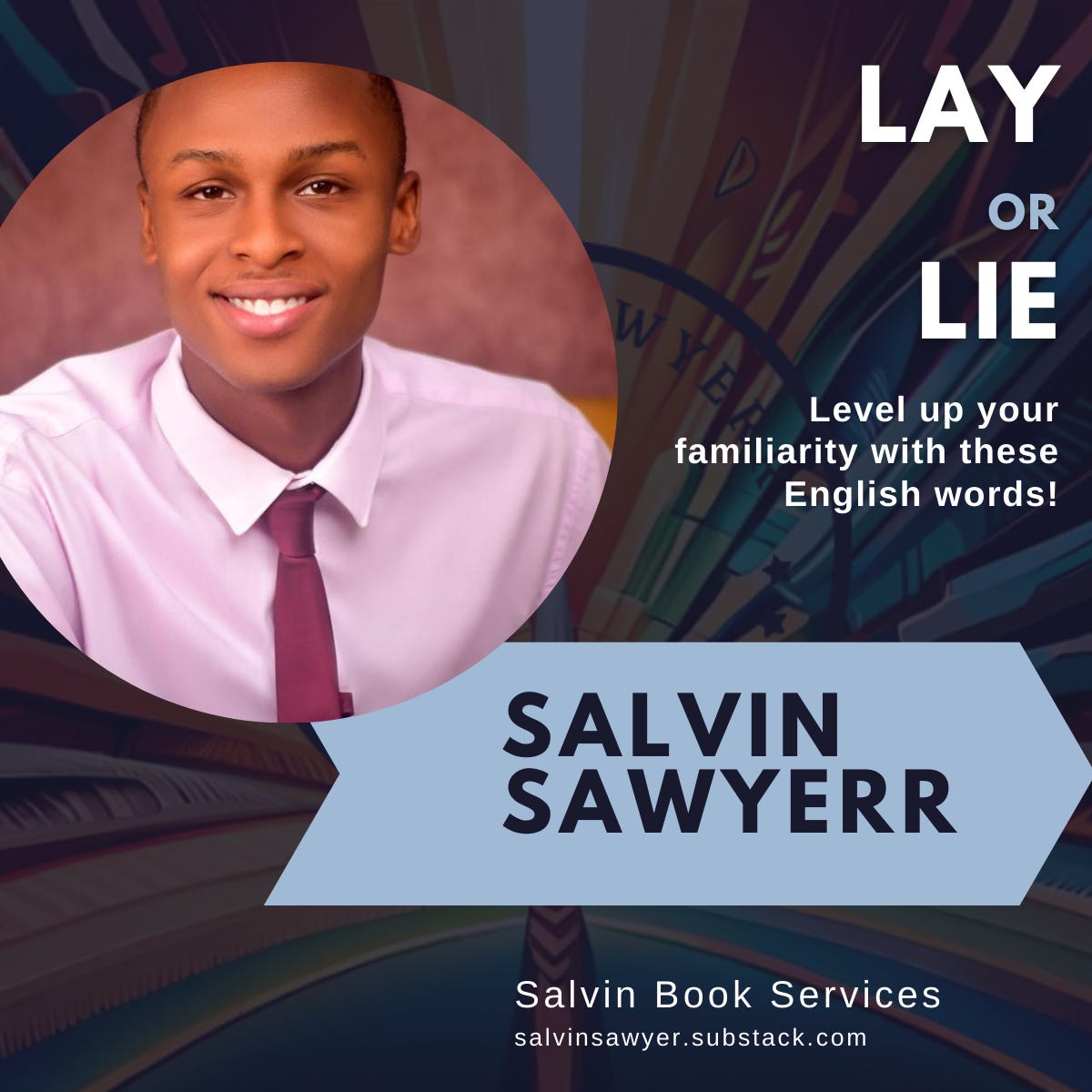LAY OR LIE?
English Nah Your Mate? 🇳🇬
Yesterday, my brother said, “I lay the book on the table for you to read whenever you desire.”
It was at that moment I realised that “lay” could be used as more than just the past tense of “lie”. It can also be used in the present tense!
With this revelation in mind, I want to share with you, dear friend, an easy way to differentiate between “lay” and “lie” — the cherished product of my research.
LAY (Present Tense)
Definition: It involves placing or putting something down, typically a direct object.
Example: “I lay the book on the table.”
NB: You are actively putting the book on the table.
LIE (Present Tense)
Definition: It means to recline or be in a horizontal position.
Example: “I lie on the couch.”
NB: You are resting or reclining on the couch.
Chill…
Before you go, “Pff, easy peasy!”
Here comes the confusion:
“Lie” (Present Tense) vs. “Lay” (Present Tense):
The confusion often arises because both can refer to being in a horizontal position. However, they are used in different contexts.
Use “lie” when there is no direct object: “I lie on the bed.”
Use “lay” when there is a direct object: “I lay on the blanket on the bed.”
Past Tense:
“Lay”: “I laid the book on the table yesterday.”
“Lie”: “Yesterday, I lay on the sofa for hours.
NB: Pay attention to their past tense forms.
Participles:
“Lay” (Past Participle): “I have laid the foundation for the project.”
“Lie” (Past Participle): “I have lain on the beach all day.”
Hehe, I’ll use this medium to beg you not to say: English no be my Papa language, I give up.
Dear you, there is hope for you with adequate practice and research of spoken/written English.
In summary, “lay” involves placing or putting something down with a direct object, while “lie” refers to reclining or being in a horizontal position without a direct object.
Remembering the past tense and past participle forms can help maintain clarity in your writing.
Do share with your writer friends and students in your contacts/connection list. For the latter, this might just be the key to their passing a very difficult external examination.
Thank you for reading.


I just wanted to say, thank you for taking the time to break down something as confusing as “lay” vs. “lie.” Honestly, I’ve always struggled with it. It’s one of those grammar things that never really sticks no matter how many times I hear it explained.
But the way you teach? It makes me want to try again. You don’t just throw rules at us, you guide us with clarity, and that matters a lot.
I’ll admit, I don’t fully get it yet, but I’m eager to learn. If you gave me objective questions or multiple choice options to practice with, I genuinely believe I’d pass well. That’s how my brain works, give me something to test what I’ve picked up, and I’ll rise to it.
You’ve got a gift for teaching. It shows, not just in what you say, but in how you say it. So thank you for being someone who makes English feel less like a minefield and more like a language I can actually own.
Please keep doing what you do, it’s helping more than you know.🩷